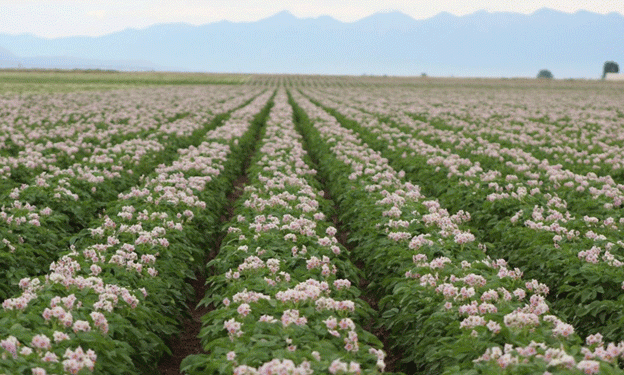Farmers face increasing challenges due to unpredictable precipitation, which can range from drought to excessive rainfall. Both extremes can affect crop health, leading to issues such as stunted growth or the proliferation of diseases like tar spot in corn and white mold in soybeans. Michigan State University (MSU) researchers are addressing these challenges by developing a low-cost monitoring system, called LOCOMOS, that helps farmers optimize irrigation and manage diseases effectively.
Led by Younsuk Dong, an irrigation specialist at MSU, the LOCOMOS system uses affordable sensors to measure soil moisture, leaf wetness, and other critical environmental factors. The data collected is then processed by software that provides farmers with precise irrigation recommendations via a smartphone app. This innovative technology helps farmers avoid over-irrigation, which can encourage disease growth, while conserving water and improving crop health.
In 2021, the project received a three-year, $426,000 grant from the U.S. Department of Agriculture’s Natural Resources Conservation Service (NRCS). It has since been tested on several crops, including corn, soybeans, potatoes, and tomatoes, across multiple Michigan farms.
Improving Irrigation Efficiency and Crop Health
Preliminary results from the testing phase show that LOCOMOS significantly improves irrigation efficiency without increasing disease incidence. In corn and soybean fields, for example, the system increased water use efficiency, yielding economic benefits. Farmers reported an annual profit increase of $7,700 for corn and $1,300 for soybeans in 100-acre fields, thanks to improved yields and reduced energy costs associated with pumping water. In tomato fields, water usage dropped by 30%, translating to further savings.
The technology’s ability to fine-tune irrigation schedules based on real-time data helps farmers manage water more effectively, leading to healthier crops and higher yields. Additionally, LOCOMOS has the potential to improve fungicide application timing, further reducing disease risks and promoting more sustainable farming practices.
Expanding the Reach of LOCOMOS
LOCOMOS has garnered interest across different agricultural sectors, with trials extending beyond Michigan. The technology is being tested on blueberries and potatoes, and its results are being shared at various conferences and industry meetings. Researchers believe that the system’s ability to offer holistic plant health insights could transform irrigation management across the agricultural landscape.
As the project continues, Dong and his team aim to automate the system further. They envision a future where the sensors not only provide irrigation recommendations but also automatically adjust irrigation systems in real time, optimizing water use and reducing labor demands.
The development of LOCOMOS represents a major step forward in precision agriculture. By providing farmers with accessible, low-cost tools for optimizing irrigation and disease management, MSU researchers are helping to create a more sustainable and profitable future for agriculture. As the system evolves, it promises to revolutionize water use efficiency and disease control across a range of crops, benefiting both farmers and the environment.







